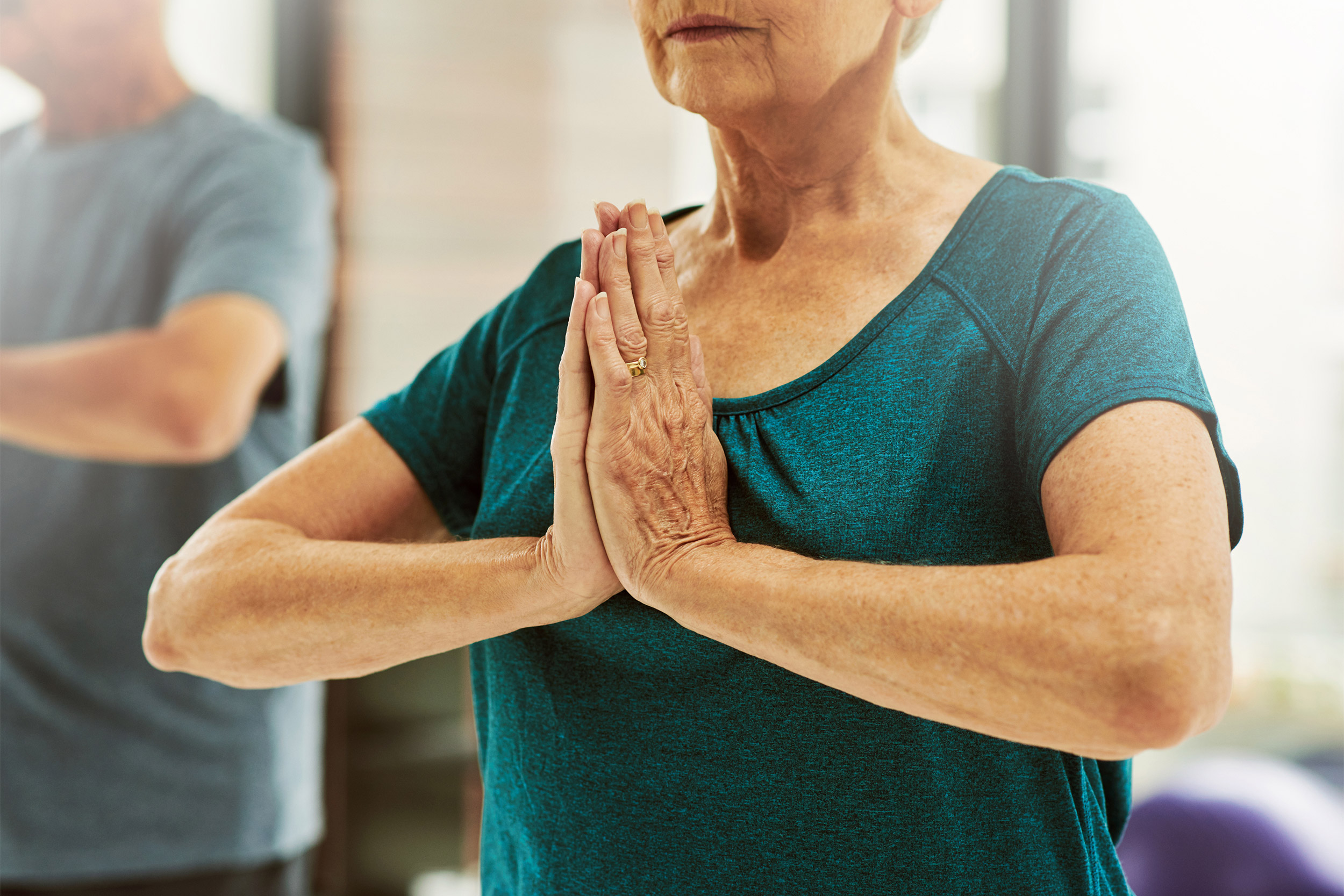
Strong evidence that yoga protects against frailty
Mind-body practice boosts walking speed, other capabilities in review of 33 studies
Based on randomized controlled studies, researchers found yoga may improve known predictors of longevity, including walking speed and leg strength.
The mind-body practice involves physical poses as well as other elements such as breathing and meditation, and has previously been shown to improve balance, mobility, and mental well-being in older adults.
To investigate whether yoga can improve frailty researchers at Harvard-affiliated Brigham and Women’s Hospital and other collaborators reviewed 33 studies, which included 2,384 participants over 65. Their findings, published in Annals of Internal Medicine, suggest that yoga increases walking speed and the ability to rise from a chair, both associated with less frailty and increased longevity.
Yoga’s benefit to physical health has never been assessed against validated definitions of frailty, such as the Fried physical phenotype and Rockwood cumulative deficit models. Therefore, the authors reviewed studies that reported how yoga affected individual metrics of frailty included in these models, like gait or walking speed, balance, handgrip strength, lower extremity strength and endurance, and various multicomponent physical performance measures.
Across the studies reviewed, improved walking speed was found to have the strongest association with a yoga intervention compared to control groups who were inactive or who received educational interventions. The authors emphasized the clinical importance of this finding, given prior research showing that slower walking speeds are connected to higher risk of death in older adults.
“It’s never too late to start a yoga practice or exercise regimen to help with your overall health status in your later years.”
Julia Loewenthal, Division of Aging at BWH
Similarly, the authors were encouraged by the finding that yoga may improve leg strength, which affects daily activities like rising from a chair or bed. There was less evidence that yoga improved balance; however, the authors note that some of the yoga practices in the reviewed studies were chair-based programs, and therefore may not have offered the same benefit to balance as standing poses. Handgrip strength, another metric of frailty, was not found to improve with yoga practice. Yoga was also not shown to offer benefits for frailty that extend beyond those associated with exercise or other mind-body practices like tai chi.
“There are many contributing factors to frailty, such as difficulties with walking and balance, cognitive impairment, and certain chronic conditions. When you look at a whole person, especially an older person, there may be a number of difficulties that each contribute to frailty,” said first author Julia Loewenthal of the Division of Aging. “Since yoga is an integrative practice that impacts multiple areas of health, it may be effective for preventing a syndrome like frailty, which has multiple causes.”
The authors note several limitations to the study, including the small sample sizes of many trials and the lack of consistency in the types of yoga practices evaluated. Their findings suggest that Iyengar-based styles of practice, which are customizable and amenable to the use of props, may be especially effective for frailty prevention. Going forward, the researchers hope to use validated definitions of frailty, such as the Fried physical phenotype or Rockwood cumulative deficit test, to assess the effect of a yoga intervention on frailty in older adults. Determining whether yoga is more effective as an early intervention for frailty at younger ages is also of interest to the researchers, who note that the mean age of the participants was 72 years.
“There’s a potential for movement-based mind-body practices to be really helpful for promoting healthy aging over the lifespan because they provide a physical and cognitive health benefit, but also because they have a spillover effect that can lead to having a healthier lifestyle overall,” Loewenthal said. “It may be helpful to get involved in a healthy practice like this at a younger age, but with that said, we still saw clinically meaningful results in an older population. It’s never too late to start a yoga practice or exercise regimen to help with your overall health status in your later years.”





